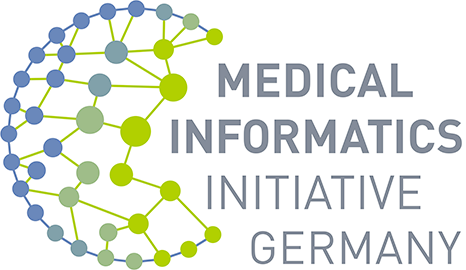5 September 2018. The German federal government’s new High-Tech Strategy (HTS) 2025 includes funding for research-compatible electronic patient records (EPRs), with the aim of supporting progress in medical research and, in the long term, improving the healthcare system. The goal is for all university hospitals to be using EPRs by 2025. HTS 2025 was presented today in Berlin by Federal Minister of Education and Research Anja Karliczek.
German university hospitals and medical centres have already been creating the basis for integrated electronic patient records, including integration with clinical and biomedical research. As Professor D. Michael Albrecht, Chairman of the German Association of Academic Medical Centers (VUD), states: “Support from the federal government will allow us to accelerate achievement of our goal of creating integrated patient records – that give doctors all treatment-relevant information and, simultaneously, make the latest research findings available. This will contribute significantly to the implementation of other imperatives of the High-Tech Strategy, such as making new cancer drugs available to patients more quickly and safely.”
Moreover, as Professor Heyo K. Kroemer, President of the German Association of Medical Faculties (MFT), underscores: “The digital transformation of medicine must take into account the needs of medical research. We welcome the federal government’s efforts to pursue this goal to the benefit of the country’s citizens.”
The foundations for research-compatible electronic patient records are currently being laid within the scope of the Federal Ministry of Education and Research’s (BMBF) Medical Informatics Initiative (MII). The university hospitals involved in the initiative’s consortia are to develop and coordinate IT solutions for sharing data across research and healthcare. These activities must now be applied to patient care – and, in particular, they must be coordinated with the activities of health insurance providers, doctors’ associations (Kassenärztliche Vereinigungen) and hospital operators. Furthermore, the university hospitals intend to design these interfaces with patients front of mind.
Nearly all university hospitals and medical centres in Germany are cooperating within MII. The initiative’s coordination office is operated by Technology, Methods and Infrastructure for Networked Medical Research (TMF). As Professor Michael Krawczak, Chairman of the TMF Board of Directors, underlines: “The initiative’s work lays the ground for research-compatible EPRs, and contributes to the successful implementation of infrastructure for medical research. A further important step is alignment with other EPR initiatives. The High-Tech Strategy 2025 could open up new opportunities in this regard.”
In addition to research-compatible EPRs, further key topics for German university hospitals and medical centres include new technologies for patient care, disease prevention, antibiotics development, and accelerated use of research findings for better patient care.
Background
The aim of the Medical Informatics Initiative (MII) is to enhance research and patient care through innovative IT solutions. These will enable the sharing and use of data from healthcare and from clinical and biomedical research across multiple entities and sites. The German Federal Ministry of Education and Research (BMBF) is investing a total of 150 million euros in the initiative through 2021. Within the scope of four consortia – DIFUTURE, HiGHmed, MIRACUM and SMITH – nearly all German university hospitals and medical centres at over 30 locations are cooperating with research institutions, businesses, health insurers and patient representatives. Their mission is to enable the use of research findings to the direct benefit of patients. At the same time, priority is given to robust data protection and security.
The Berlin-based coordination office, operated by TMF (Technology, Methods and Infrastructure for Networked Medical Research) with MFT (German Association of Medical Faculties) and VUD (German Association of Academic Medical Centers), is responsible for managing cooperation within MII at national level.

